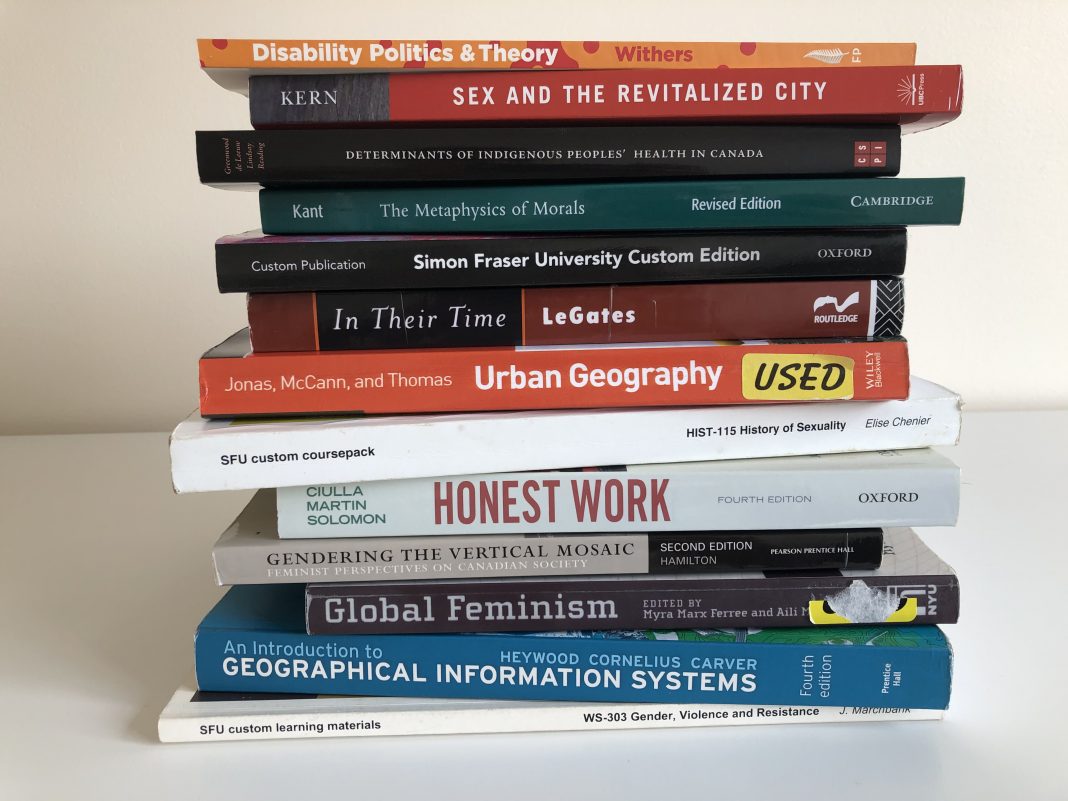Written by: Nancy La, Staff Writer
The Simon Fraser Student Society (SFSS) recently launched a new petition to support the use of Open Educational Resources (OER) and increase textbook affordability for students.
The SFSS proposed the use of OER, including open textbooks, multimedia, and assessment tools, as a solution to rising educational costs.
“We incorporated the student responses in the textbook statistics from the SFU bookstore, and then we talked about how we can alleviate financial burdens attributed to these costs,” Liu said.
According to the petition, SFU students spent an average of $244.17 on textbooks and course materials per semester in 2019. The campaign also asked students how they would reallocate textbook money. Responses included rent, groceries, and utilities.
The school established an OER Grant Program in 2016 that is funded by the Office of VP Academic and Provost, said Liu. She added instructors can access funding up to $5,000 for creating or using OER in their courses.
However, the grant money is coming to an end as resources dry up due to lack of funding, Liu explained.
“If the petition receives positive response from students, it can be used to negotiate for further funding,” Liu said.
“The focus of the OER student campaign [ . . . ] is to let students know the alternatives to expensive commercial textbooks and other course materials, and that their instructors have the power to adopt and adapt existing OER or create their own.”
In addressing the challenges the OER movement faces, Liu noted the importance of SFU playing a bigger role to encourage instructors to use OER.
“SFU does promote OER in their policy, but they don’t really do anything to encourage instructors to adopt or adapt it [ . . . ] It’s really hard to incentivize instructors to use extra time to learn about OER.”
The SFSS urged faculties to adopt OER as classes move online; however, it was met with resistance, Liu explained. “The response from faculty wasn’t that great because everyone was scrambling to transition their courses online.”
Mark McLaughlin, chief commercial services officer, said in a statement to The Peak that SFU is working with students on the topic of textbook costs by “shift[ing] access to course material to an online model that favours student choice and affordability.”
The shift from physical textbooks to online versions has reduced the costs of course material by 59%, which is “now an average of $99 per term,” according to McLaughlin. He added that online course materials “[provide] enhanced features for student accessibility, including text to speech and screen reader capabilities, as well as [allow] for access on any device, with or without internet.”
Liu explained that while professors have been incorporating online course materials, it’s hard to gauge how much of those are open resources.
McLaughlin did not discuss the OER Grant Program in his statement, but noted the availability of library staff and Centre for Educational Excellence as resources for instructors looking for OER support.
“The Library is also currently working on longer-term recommendations to increase support for using and developing OER and for advancing open education more broadly at SFU,” McLaughlin added.
“We are listening to student voices and as part of that we have been keeping costs in mind when making decisions on textbook and course materials.”




